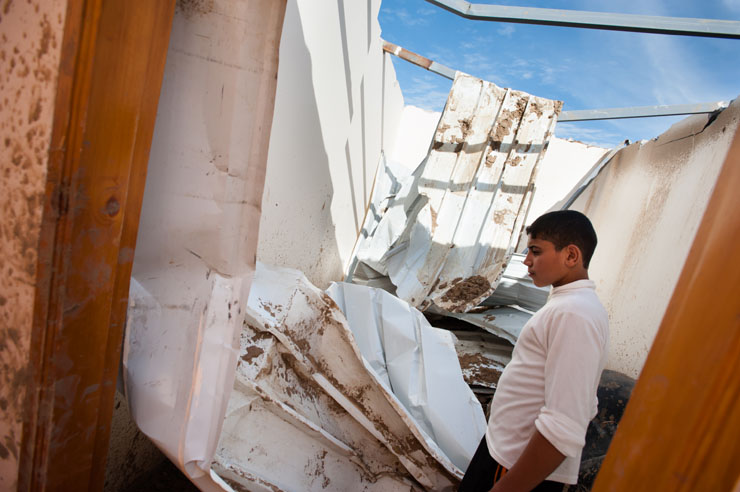Israeli incursions in the West Bank are the largest since the Second Intifada, while airstrikes over Gaza continue for a fifth consecutive night.
“The ‘party’ tonight is lasting longer than usual,” says my friend from Gaza. He recently married, and he and his wife moved to the top floor of an apartment building with panoramic views of Gaza City.
For the last five nights, those views have given him a reporter’s vantage point on a sustained Israeli bombing campaign – the longest since Operation Pillar of Defense, the nine-day attack on the 25-mile-long strip in November of 2012. At the time, Israel justified the bombing, which included attacks that Human Rights Watch determined had violated the laws of war, as a deterrent to Hamas rockets.

Never mind that the 2012 onslaught followed Israel’s assassination of Hamas military wing leader Ahmed Jabari, who had been responsible for defusing violence that had broken out after Israeli soldiers invaded Gaza on November 8, killing a 12-year-old Palestinian boy. The 2012 attack at least issued from a set of consistent Israeli talking points, however deceptive their premise.
The current campaign claims no such consistency. If the aim is to retrieve three yeshiva students who went missing in the West Bank — on occupied land under full Israeli military control — then why is Israel bombing Gaza?
Read: Why Israel’s response to the kidnappings feels awfully familiar
Listen to one Israeli officer quoted in an ultra-Orthodox outlet yesterday, and you might get a hint of Israel’s intentions:
“This was actually the true goal,” he said of ongoing military operations in Jenin, “to provoke [Palestinians] into causing disorder, and then put down those causing the disorder.”

If Israel is hoping to provoke Hamas into launching a barrage of rockets from Gaza, the tactic has so far not worked. One explanation for this could be that Hamas sees restraint as an opportunity to accrue political capital among Palestinians in both Gaza and the West Bank. The calculus is simple: Hamas upholds, at least publicly, the united front it forged with Mahmoud Abbas. Meanwhile, the Fatah leader undercuts his own credibility by vowing further “security” cooperation with Israel.
In the long term, such a strategy could well yield political gains for the Islamist group. But this is no time for political maneuvering. My friend in Gaza tells me the sorties are getting lower, the concussion of each explosion louder. And on the fifth night, they lasted longer, too – this time injuring six people, including four children. Meanwhile, the West Bank is enduring the largest Israeli military assault since the Second Intifada. On Thursday night, Israeli soldiers killed 13-year-old Jihad Mohamed Duadin in the town of Dura, near Hebron, and left another Palestinian teenager in critical condition after he was shot near Qalandiya. Not to mention major incursions from north to south that have snatched hundreds from their families, ransacked homes, and cut off Palestinian towns and villages from each other.
One thing is clear: As Israel continues on this course, neither Fatah nor Hamas have the wherewithal to protect the people they claim to represent. With Palestinians in the West Bank and Gaza continuing to bear the brunt of Israel’s deadly goading, it is they to whom Netanyahu and Co. will eventually have to answer. And if history is any guide, no amount of military might can silence them.
More on the kidnappings:
Badawi: Why Israel’s response to the kidnappings feels awfully familiar
Omer-Man: Rights groups say response to kidnapping is collective punishment
Matar: Israel’s crackdown moves beyond Hamas militants

